Aeon Station’s Observatory is the result of a hard-fought-and-won, years-in-the-making effort. While AS’s Kevin Whelan may wish it had come sooner, I suspect he’ll ultimately appreciate that the timeless melodies and powerful songwriting he’s delivered here are the result of age, experience, and ultimately, hardship. It’s a record that soulfully sings because his passion has persevered and his astute, relatable songcraft continues to land in hearts like an atom bomb.
I’d be remiss if I didn’t mention that Whelan and his cohorts, his brother Greg and, Jerry MacDonald, who offer considerable performances here, were longtime members of a celebrated New Jersey indie band, The Wrens. The back story is complicated; it’s one that can be read about in other interviews frankly. That said, with the closing of that chapter, a new, beautiful chapter in Whelan’s cannon is born, however painfully (and publicly) it came to be.
I had the pleasure of doing this interview, twice in fact. Although my digital recorder failed via user error upon first attempt, and this account is missing some of my unapologetic fanboy swooning, hair compliments, and personal anecdotes I initially heaped on Whelan, I finally caught up with Kevin to ask some questions that brought telling responses. Frankly, what I learned impressed me. Simply, he appreciates the journey that brought him here, he loves his family passionately, and he’s hoping this record connects with listeners, who he loves almost as passionately.
While this might not be the salacious take other outlets deliver, or even particularly profound to most readers, his responses certainly resonate with me, particularly as a longtime fan.
Your life has surely taken some twists and turns since the release of The Meadowlands?
Oh man, since the release of The Meadowlands it has been 20 years. And, we worked on it for a number of years before that. So essentially, it’s been almost half of my life. We worked, traveled, supported the album, which brought us to so many amazing places in the United States and Europe, and just changed the way we looked at and felt about music. How lucky we were to have such a great reception.
After that we realized we weren’t going to become big rock stars and money wasn’t really going to follow so we figured out [other] careers. Then we got married, we had children. Since those times I almost feel like I’ve lived 100 different lifetimes, great ups and great downs.
On the first single from the record, “The Queen,” part of the message seems to be going all in. You’re releasing the first Aeon Station record, and have a brand new and somewhat legendary label backing you on it. Are you heading into this with Greg Dulli-like confidence, or are you nervous? How are you feeling about it all?
I have essentially lived my entire life dreaming of being on a label like Sub Pop and I have the proof. For over a decade we’d send our demos and desires to them directly hoping that they’d sign [The Wrens] to no such avail. However, many years later, Tony and Jonathan were kind enough to be interested. They’ve just been the absolute greatest record label to ever work with. I’ve been blown away by how easy they make it all look when it’s not easy at all. In this day and age, to support new artists, and understand the importance of art inside our society…in this sort of TikTok/Instagram world of [chasing] the latest commodity, it’s amazing that Sub Pop still values digging deep and providing what’s important about music.
I definitely don’t have Greg Dulli-like confidence whatsoever. I’m extremely nervous to be putting this out there. I’m 50 now, and I’ve heard enough bad things said about me. I’m trying not to worry {about things out of my control], and I’m lucky to have so many people supporting the music.
As a parent, I know how all-consuming the relationship between father and son is. You spend so many waking minutes and hours wondering and agonizing over the way your children process the world. The press release indicates that the title of the LP is inspired by your son, who is autistic. At the risk of overstepping, can we talk about how the experience of parenting someone who is not neurotypical has affected your outlook?
Thank you for asking. He’s an incredibly important part of my life. My son is 8-years-old and autistic. He was diagnosed with autism at about 15 or so months. Of course, at the time of the diagnosis, it was heartbreaking and confusing and sad. I wasn’t ready for it as a parent. We’ve lived through many therapists, hopes, dreams, and lots more sadness and confusion, but I was able to realize that my son, who isn’t able to speak that much, is able to be in the world, be in our world, and observe things. I watched him as he was watching things, taking them in, and having seen what they meant to him.
Also with my son and his diagnosis, it showed me that my life is precious and I can’t waste time. I need to celebrate all that I can do to support him. Part of that is music, sharing music, and he loves music. It is a wonderful connection.
You played the majority of the instrumentation on the record. Did you and Greg grow up in a musical household or does your multi-instrument leanings coming from someplace else altogether?
My mom and dad were school teachers. My dad was a superintendent for a school district in Wildwood New Jersey and my mom was a librarian and school teacher for Cape May, New Jersey. They loved music. Their parents were Irish, and music is a huge part of the culture. Singing and all of that. We always had that around the house.
Actually, my mother bought a piano from a fellow school teacher and put it in the dining room. I would look at this old-fashioned standup piano against the wall. It looked like an old Viking ship with all of its broken keys. Some were white, some were tan. It looked like it had had a life. And it just sort of called me. I started playing, trying to teach myself, and asked my parents for piano lessons.
From that, up in my room, I taught myself some guitar and bass, I didn’t play well as I hadn’t taken lessons, and I inadvertently taught myself upside down. So besides the piano lessons, I guess my parents always supported my love [for music].
Tell me a little bit about having your wife Mary Ann do vocals? Is she a musician or performer?
She also loves music. We had a very shared bond with music in our relationship. She’s into The Smiths, Nine Inch Nails, and lots of other amazing music from when we grew up. She has always been supportive of me doing music.
I would do the vocals in the kitchen, and while I was doing that one day, she came home from work, very cute, carrying her bag from work and in her work clothes, and I sort of tricked her into singing the vocals right there on the spot because I knew if I prepped her she’d say no. So it was a sneak attack and I was very lucky [to capture that]. She provided vocals for a couple of spots on the record. I felt it added such a great depth to the songs and music. And it was just a lot of fun having her do that.
Your work has always delivered in spades on melodies and harmonies, and Observatory certainly continues that tradition. When and from where do you think that you developed a passion for that? Is it simply from being a student or fan of pop music or is it something more than that?
It’s weird because I’m incredibly shy and insecure about my singing and vocals. Maybe the more harmonies I added on helped me not be so scared and hating the vocals. On Observatory there are a lot of harmonies. I studied piano and I think that helps, but yeah, it is also a love of music and all the bands that I listened to with the great melodies and harmonies all over the place. There are some singers, like {Morrissey} or {Bono] or Depeche Mode who don’t have harmonies, but then you have The Kinks or Vampire Weekend who have incredible harmonies. Maybe I’m just trying to emulate them.
Your music has always resonated in a really personal way for me. Although I’ll spare you the personal anecdotes, I think that experience with your output is probably typical of your fans, right? Is it more or less important to you to make those connections or to concentrate on your own artistic catharsis?
I will say this over and over again; that is the main goal of whatever humble music I’m able to make, share, have heard. I want the music to be experienced by someone else and be taken into their world in whatever way they want. I really can’t stress enough that this is the ultimate honor, the ultimate review. To have some say your music touched them, they need it at a particular moment– and it doesn’t have to be a serious moment, it can be a fun moment or a companion [memory] — but, we reach to music in times of need, right? The most important component of making music is having those connections happen.
Purchase Observatory here.


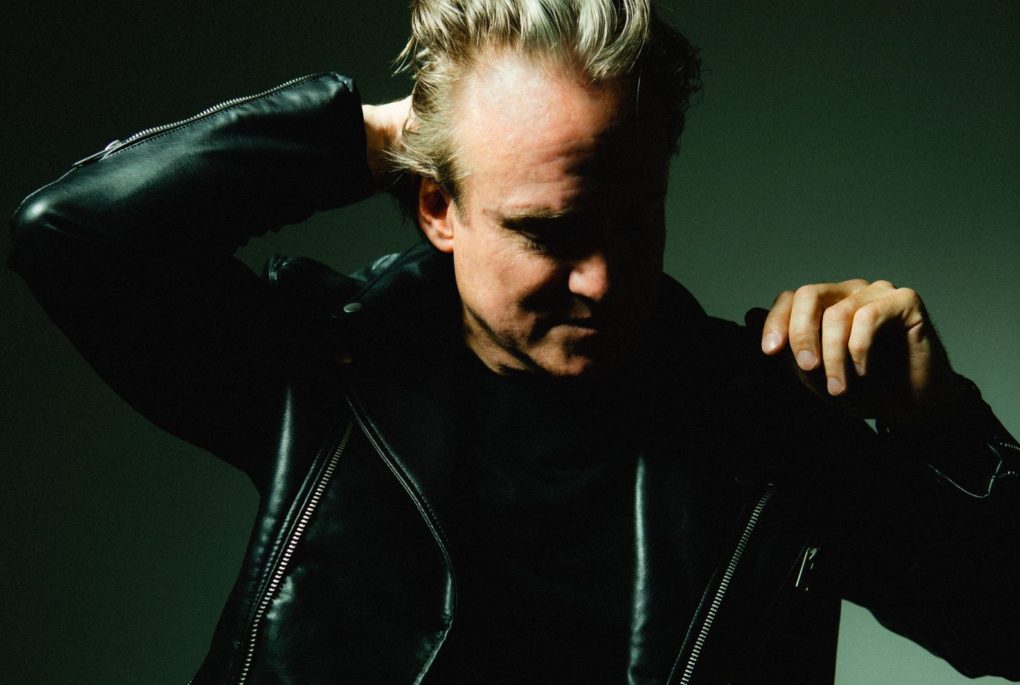
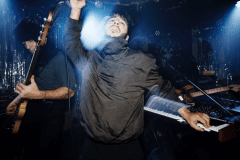
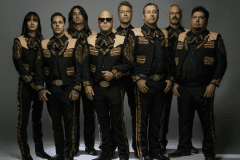
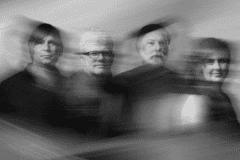
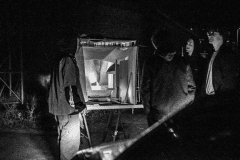

Social Media